Vegetable plants need nutrient-rich soil so that they can produce nutritious vegetables. These plants absorb nutrients from the soil. However, your soil losses due to the previous crop are of this nutritional importance. Therefore, you should use either organic fertilizer or mineral fertilizer to increase nutrients in the soil. Nature has 17 nutrients that are essential for plant growth.
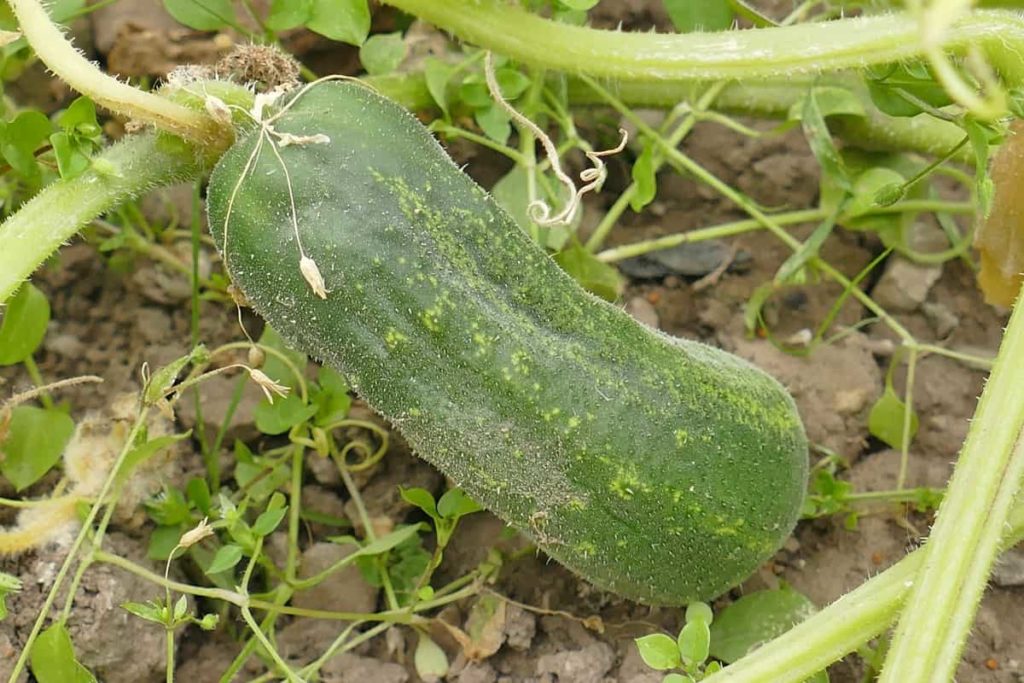
However, most gardeners and farmers use NPK fertilizers as it is a combination of several nutrients. When it starts to have true leaves, you need to compost your plants. In other words, your Cucumber seedlings need to be composted after 2 weeks of the plantation. Let’s check out the best fertilizers for Cucumber.
You must fertilize your Cucumber plants in three different stages.
- While planting
- During mulching around the plant
- Liquid manure at intervals of 2 weeks, when the plant starts growing.
Cucumbers have low nitrogen requirements, but they need higher potassium and high levels of phosphorus. Knowing your soil type helps determine how many and what nutrients your Cucumbers need. Heavy soil can lock nutrients. Adding fertilizer before planting improves most of the soil in the garden. Organic matter enriches light sandy soil and lightens heavy soil.
Organic fertilizers for Cucumber plants
- The perfect fertilizer for Cucumber is well-aged compost. Compost holds 2% nitrogen and is released slowly over many years. Compost provides other benefits, including improving soil quality by loosening, boosting air, improving drainage, and increasing disease resistance.
- Compost can be applied as an annual mulch or can be worked in your soil before planting without causing the formation of additional nutrients. It also provides healthy soil modification phosphorus, potassium, and micronutrients that Cucumbers need. Compost mulch also helps in keeping the competition with weeds low, so Cucumbers get soil nutrients.
- Better organic food for Cucumbers will be a nettle tea, made by steeping the nettle in water for 3 to 6 weeks. Another organic liquid high nitrogen feed that will benefit Cucumbers can be made by steeping a hessian sack filled with fairly fresh horse droppings in a barrel of water until the water is dark brown. It is called muck tea.
In case you miss this: Cucumber Planting Frequently Asked Questions
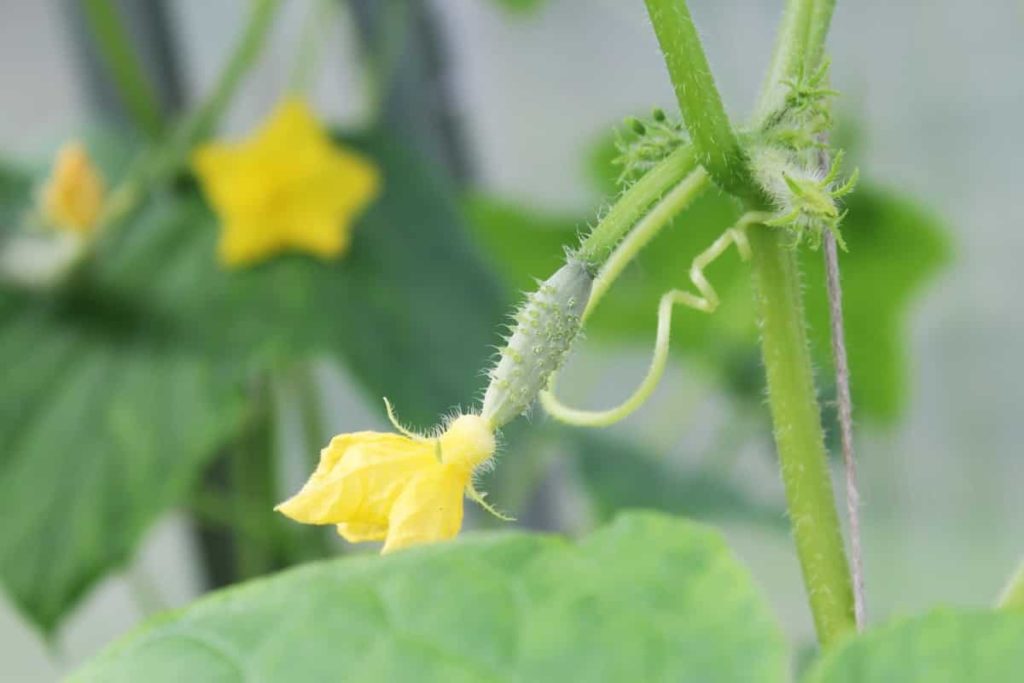
Homemade fertilizers for cucumber plants
- A good level of homemade manure in the border should provide trace element requirements to feed Cucumbers. A mix of seed meal, lime, bone meal, and kelp meal. All materials are derived from nature and are available in most garden centers. Homemade fertilizer will not burn Cucumber plants. Combine the ingredients in a large bucket or container.
- Mix the following ingredients in terms of volume rather than weight. 4 portions of seed meal, 1/4 portions of agricultural lime, 1/4 portions of gypsum (or twice as much as lime), and 1/2 portions of dolomitic lime. For best results, add 1 part bone meal, rock phosphate or bat guano, and 1/2 to 1 part of the kelp meal. Chemical-free grass clippings can be substituted for seed meals. Save the mixture in a closed container for use in the growing season.
- Apply 1 cup of homemade fertilizer as side-dressing on Cucumber plants a week after opening. Fertilize again in three weeks. Do not continue to compost, as it encourages the growth of oxidation at the cost of fruit growth. Spread a cup of manure mixture around the plant and irrigate.
Commercial fertilizers for Cucumber plants
You can also use soluble products in water like Miracle-Gro. Just mix it according to the manufacturer’s instructions and apply it when the flowers first appear. If you are lucky enough to survive your plants for a long time, you can re-fertilize them about a month after the first fruit is born.
NPK ratio for Cucumber
- The Cucumber plant needs less nitrogen nutrient content and a high intake of potassium nutrients and phosphorated nutrients. Some of the all-purpose fertilizers contain high amounts of nitrogen nutrients. This high level of nitrogen nutrients in these fertilizers is not healthy for the Cucumber plant. Cucumber plants produce quality fruits with low nitrogen levels. High levels of nitrogen in the soils promote growth in the plant but do not produce quality fruit as per the expectation of every farmer. High nitrogen nutrients planted in any garden promote growth in vines and leaves rather than Cucumber fruit. High nitrogen intake can also cause Cucumber flowers to fail to open.
- Cucumbers produce quality fruits in nutrient and phosphorated nutrient-rich soils. These nutrients help in fruit production. Potassium and phosphate are many types of nutrient-rich fertilizers.
- Different types of soil have different nutrient requirements. Some types of soils are rich in nitrogen nutrients and other types of soil are sown with potassium and other nutrients.
In case you miss this: Tips For Growing Cucumbers, Ideas, And Secrets
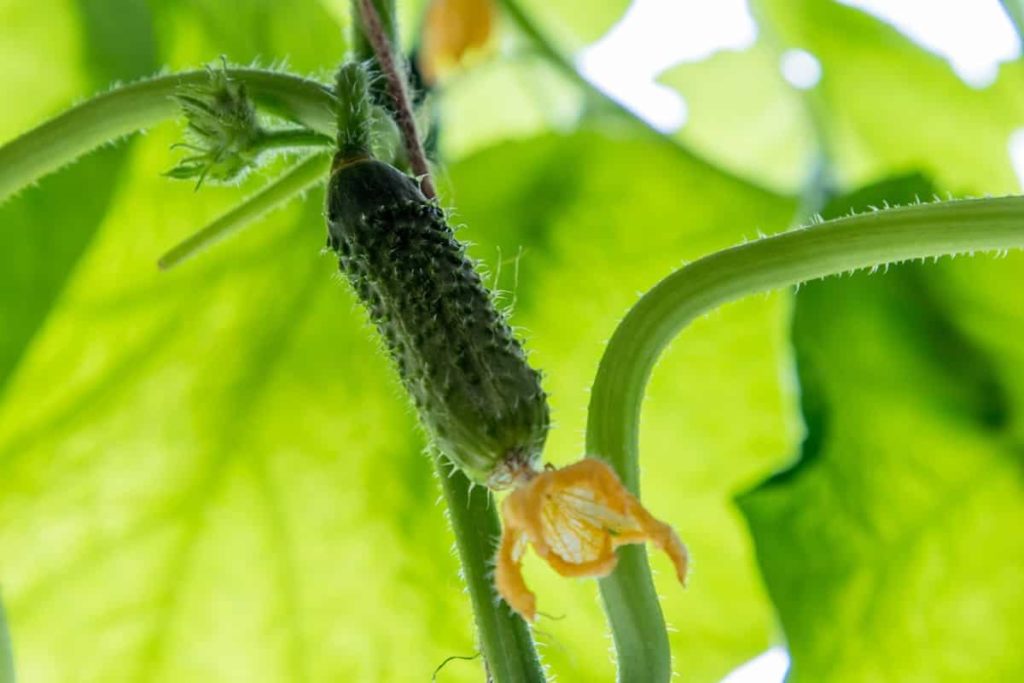
- For example, plant Cucumbers on sandy soil may need to buy a type of fertilizer that contains all the nutrients required in the development of Cucumbers. This means that the farmer may need fertilizer rich in nitrogen nutrients and potassium and phosphate nutrients.
- The best NPK ratio of Cucumber should be 2-3-6. Apply fertilizer while planting as per the instructions, reapply after seeing the actual leave of Cucumber. Use water-solving fertilizer in such a way that you can pour water on it to dissolve it after scattering the fertilizer.
- Once Cucumber plants are flowered, applying a balanced, all-purpose fertilizer can be beneficial. An all-purpose water-soluble fertilizer will work fine. You can also use balanced granular fertilizer. Focus on the number three code on the bag when choosing granular fertilizer 10-10-10 or 12-12-12. These numbers indicate the percentage of nitrogen, phosphates, and potassium that are included in a particular bag respectively.
When to fertilize the Cucumber plants, schedule
Once the Cucumber is planted and starts growing, the farmer needs to start watering. A substantial amount of water leads to the production of quality Cucumbers. After a short period, the Cucumbers start producing some flowers. Now it has become the right and proper time to apply fertilizer.
Use of all the purpose types of fertilizer is always recommendable. An all-purpose type of fertilizer that is soluble in water. Use a type of fertilizer that is rich in all three nutrients. A fertilizer bag labeled 12-12-12 means it has equal parts of three nutrients that are nitrogen, phosphate, and potassium.
In case you miss this: Growing Organic Cucumbers In Containers, Pots
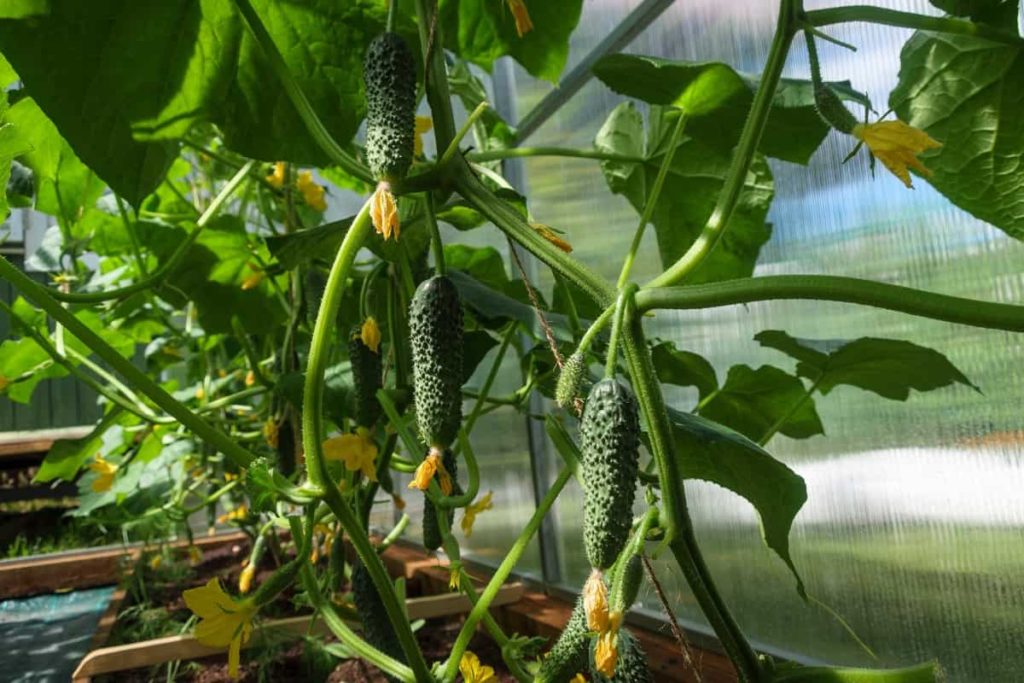
How to fertilize the Cucumber plants
Fertilizer is scattered on the plant’s ground. The man who scatters fertilizer should be careful not to apply it on plant leaves as it can burn or cause other harmful effects. Fertilizer is planted on the base of the plant. It is also recommended to water the plant while applying the fertilizer that is applied after the plant bloom. Watering the plant dissolves the fertilizer. After the plant produces fruit for the first time, the farmer can reapply fertilizer.
Fertilizing Cucumbers plants in containers
Fertilize the cultivated Cucumbers by mixing compost with your potting soil. You can also add timely released, low nitrogen, high potassium pelleted fertilizer with a similar NPK-ratio of 2-3-6. Apply 1 tablespoon per pot on planting, or as per label instructions if they are different from this rate, and then when you first see the true leaves on your Cucumbers. For containers larger than multiple plants in 12 inches in diameter or a pot, increase the amount accordingly.
After showing true Cucumber leaves, apply soluble, less nitrogen, more potassium fertilizer in weekly water. Apply weekly fertilizers at half the strength, mixing 1/2 tablespoon of manure with 1 gallon of water, or according to specific label instructions. Always wear gloves and protective eyewear while working with fertilizers.
How often should irrigate Cucumber plants?
Cucumber plants need a lot of water to grow properly. Their roots are naturally shot, making it very difficult to irrigate. Cucumber plants need at least 1 inch of water per day and may need more water if the weather is hot. If the weather temperature is above 32°C, it is advised that water Cucumber plants twice daily. But if the weather temperature is low and not up to 32°C, you should water Cucumber plants once a day.
In case you miss this: Growing Cucumbers in Pots from Seed, Cucumber Care
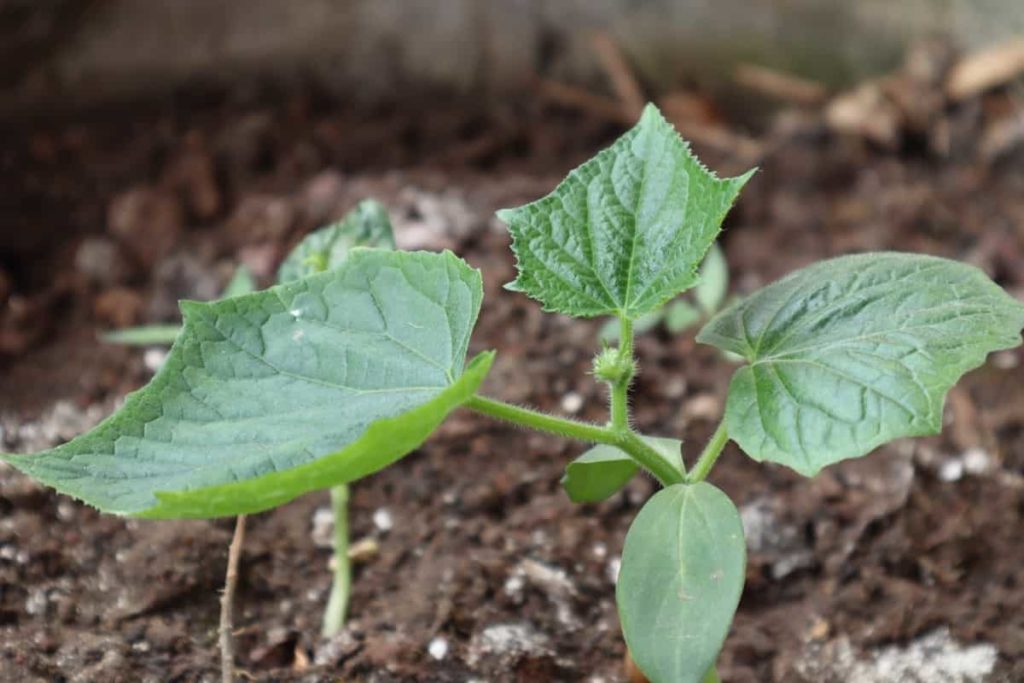
This will be enough for plants. However, you should not allow the soil to get wet, it is good enough to be moist. It can also cause Cucumber plants to wilt. The best time to water Cucumber plants is either early in the morning or late in the evening when plants are not getting full sunlight.
Common questions about fertilizing Cucumber plants
Is chicken manure good for Cucumber plants?
Cucumbers benefit from healthy doses of chicken manure pellets. This is especially true when chicken manure is mixed with enough fertilizer. The leaves will not be yellow due to a lack of nitrogen. If all other things are right, the vines will grow bigger and the Cucumbers will be very high.
How do you grow Cucumbers faster?
Cucumbers will grow faster with very little maintenance. Be sure they get an inch of water every week. Make sure to feed Cucumber plants regularly to water-soluble plant food. When the soil is hot, add a single layer of straw mulch to keep the fruits clean and help keep the slugs and beetles at a distance.
In case you miss this: Cucumber Seed Germination, Time, Period, Temperature
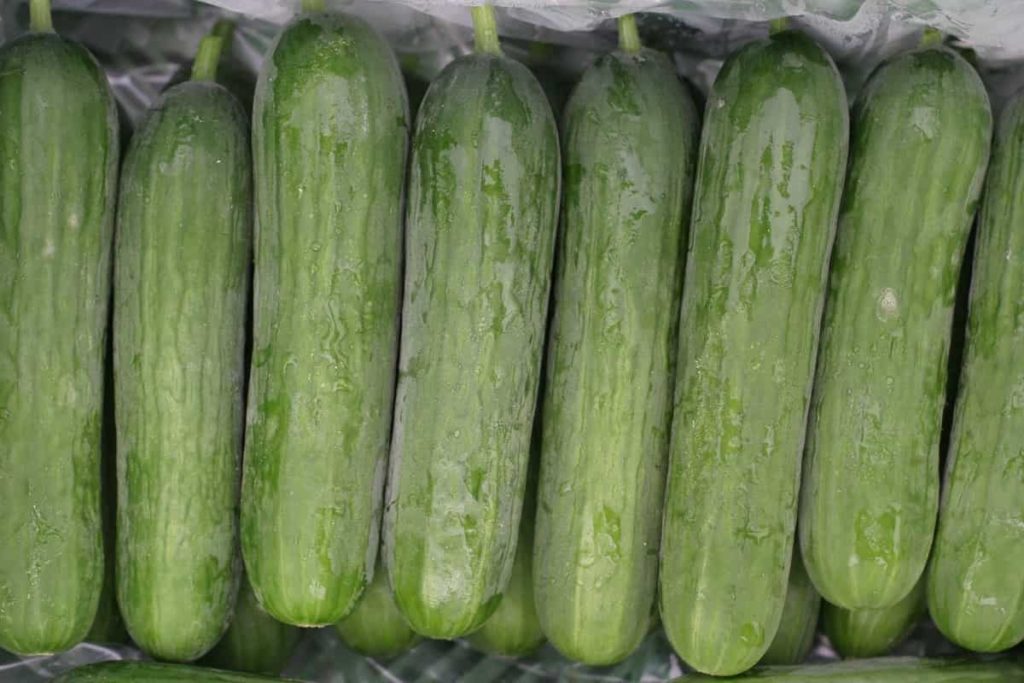
Do Cucumbers like coffee ground?
The healthy growth of plants in coffee grounds requires a lot of potassium, magnesium, phosphorus, nitrogen as well as other nutrients. Cucumber plants are known to grow well in rich and organic soil. The presence of coffee grounds in the soil will help Cucumber plants to get healthier and better.
- Broccoli Seed Germination and Selection
- Asparagus Seed Germination and Variety Selection
- Seasonal Flower Gardening: Best Practices for Spring, Summer, Fall, and Winter
- How to Grow Hibiscus from Flower
- Plantation Ideas for Home Decoration: A Beginners Guide
- Flower Garden Designs and Layouts for Beginners
- Planting and Spacing Techniques in Papaya: A Beginner’s Guide
- Growing Gold: Essential Techniques for Planting Pineapples
- How to Make Kalanchoe Plant Bushy: Home Remedies and Solutions
- 11 Reasons Why Your Gardenia is Not Blooming: Home Remedies and Solutions
- Eco Elegance: The Guide to Designing a Drought-Tolerant Landscape
- Gardening on a Slope: Strategies for Hillside Landscaping
- Nourish and Flourish: Top Organic Mulches for Thriving House Plants
- Everything You Want to Know about Indian Mogra Flower: Discover Uses and Growing
- Green Thumb Success: Expert Tips for Cultivating Greenhouse Pumpkins All Year Round
- Maximize Growth & Flavor: The Ultimate Guide to Companion Planting in Herb Gardens
- How to Control Rhododendron Problems Naturally: Home Remedies and Organic Ways to Fix Them
- Natural Magic: The Remarkable Benefits of Cinnamon for Plants
- Best Steps to Revive Dying Tulip with Natural and Organic Treatment
- 10 Reasons Why Your Angel Trumpet is Not Blooming: Remedies and Treatment
- How to Fix Periwinkle Leaf and Flower-Related Problems: Natural Remedies and Solutions
- How to Fix Zinnias Leaf and Flower Problems: Discover Natural and Home Remedies
- Organic Steps to Induce Lemon Tree Flowers: A Comprehensive Guide
- Bloom Booster: Crafting the Perfect Homemade Bougainvillea Fertilizer
- Optimizing Growth: A Guide to Applying NPK Fertilizer for Potted Plants
- 10 Best Homemade Fertilizers for Rubber Plant: DIY Recipes and Application Method
- How to Boost Female Pumpkin Flowers: Effective Steps for More Flowers and High Yields
- Transform Your Indoor Garden: Top Benefits of Pink Salt for Houseplants
- 10 Best Homemade Fertilizers for Peacock Plants (Calathea): Easy DIY Guide
- Unlock Blooms: 9 Reasons Why Your Potted Chrysanthemum is Not Blooming
- 8 Reasons Why Your Potted Hibiscus is Not Blooming: Fix it with Simple Solutions
- Unlock Blooms: 9 Key Reasons Your Potted Frangipani Won’t Flower
- 10 Reasons Why Is My Ice Plant Not Blooming: Remedies and Treatment
- 10 Reasons Why My Potted Hydrangea Not Blooming: Treatment and Remedies
- 10 Reasons Why is My Wisteria Not Blooming: Remedies and Treatment
- 10 Reasons Why is My Goldfish Plant Not Blooming: Remedies and Treatment
Very useful information. Thanks